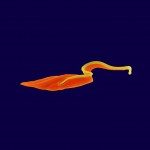Lien vers Pubmed [PMID] – 25188587
PLoS Negl Trop Dis 2014 Sep;8(9):e3075
BACKGROUND: The mode of reproduction in Leishmania spp has been argued to be essentially clonal. However, recent data (genetic analysis of populations and co-infections in sand flies) have proposed the existence of a non-obligate sexual cycle in the extracellular stage of the parasite within the sand fly vector. In this article we propose the existence of intraclonal genetic exchange in the natural vector of Leishmania infantum.
METHODOLOGY/PRINCIPAL FINDINGS: We have developed transgenic L. infantum lines expressing drug resistance markers linked to green and red fluorescent reporters. We hypothesized whether those cells with identical genotype can recognize each other and mate. Both types of markers were successfully exchanged within the sand fly midgut of the natural vector Phlebotomus perniciosus when individuals from these species were fed with a mixture of parental clones. Using the yellow phenotype and drug resistance markers, we provide evidence for genetic exchange in L. infantum. The hybrid progeny appeared to be triploid based on DNA content analysis. The hybrid clone analyzed was stable throughout the complete parasite life cycle. The progress of infections by the hybrid clone in BALB/c mice caused a reduction in parasite loads in both spleen and liver, and provided weight values similar to those obtained with uninfected mice. Spleen arginase activity was also significantly reduced relative to parental strains.
CONCLUSIONS/SIGNIFICANCE: A L. infantum hybrid lineage was obtained from intraclonal genetic exchange within the midgut of the natural vector, suggesting the ability of this parasite to recognize the same genotype and mate. The yellow hybrid progeny is stable throughout the whole parasite life cycle but with a slower virulence, which correlates well with the lower arginase activity detected both in vitro and in vivo infections.

